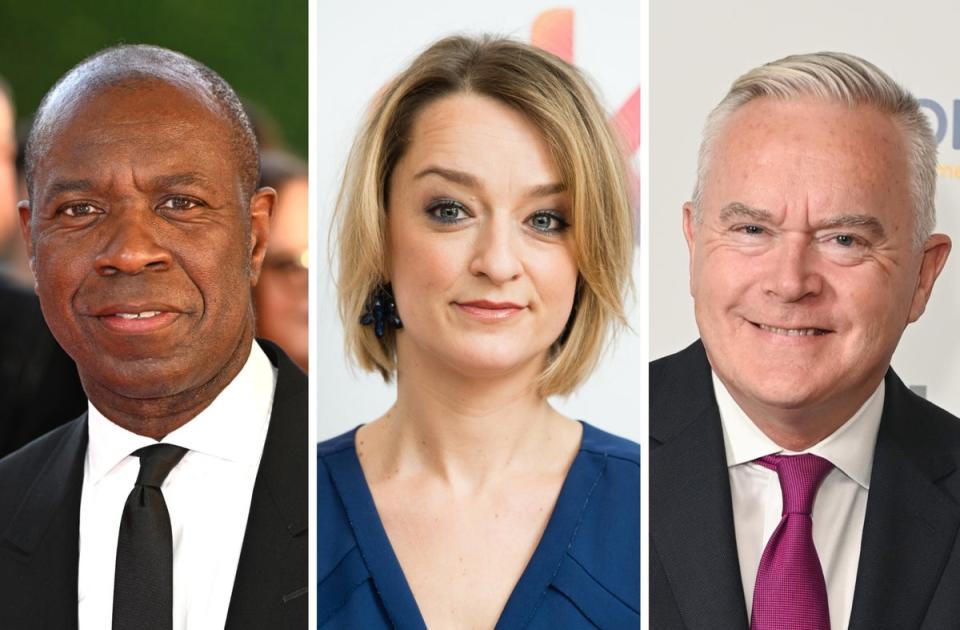Clive Myrie and Laura Kuenssberg replace Huw Edwards to head BBC’s election night coverage
Clive Myrie and Laura Kuenssberg will head the BBC’s election coverage, replacing their former colleague Huw Edwards, the corporation has announced.
The former BBC News at Ten presenter resigned on “medical advice” after he was accused of paying a teenager thousands of pounds for sexually explicit images.
The 62-year-old, who had been off-air since the scandal broke in July last year, was alleged to have paid the young person £35,000. South Wales Police and the Metropolitan Police found no evidence of criminal conduct.
Myrie replaced Edwards in his News at Ten role shortly after his resignation, and recently said that reporting on his former colleague had been “weird”. The 59-year-old currently presents the BBC’s news bulletins as well as quiz show Mastermind, while Kuenssberg heads its flagship Sunday morning politics show. Both will be assisted by the BBC’s political editor, Chris Mason.
Veteran news host Myrie has worked at the BBC since the 1980s, and had long been rumoured to be replacing Edwards as host of the BBC’s election night coverage.
He did not confirm the news, instead saying he was appreciative of what he had achieved so far.
“I’m incredibly pleased with what I’ve got,” he said in a new interview with Radio Times,. “And given that my parents were convinced that I’d made a big old mess of my career choice, they’re now very proud of me.”
Nick Robinson and Rachel Burden will host the radio coverage with Henry Zeffman on BBC Radio 4 and 5 Live.

The broadcaster, from Bolton, reportedly named “Saint Clive” by colleagues due to his impeccable reputation, also spoke about the experience of reporting on his co-worker.
“When you end up doing a story that involves you reporting on your colleagues, it’s weird. That’s actually the best description,” he said.
“It’s just weird. Because you’re not usually there to be talking about the staff in your newsroom.”
Last month, it was revealed that the BBC had warned Edwards about his online conduct two years before the scandal that led to him being taken off air, according to confidential documents.
According to documents seen by The Sunday Times, a woman in her late forties urged the BBC to halt contact between herself and Mr Edwards after they exchanged messages on Instagram and email.
The corporation spoke to Mr Edwards about his “actions and social media use” and understood the interactions were “to stop”, according to documents seen by the newspaper.
The BBC said: “As set out in our statement earlier this week, Huw Edwards resigned on 22 April on the basis of medical advice from his doctors. The BBC accepted his resignation and we do not believe it appropriate to comment further.”

 Yahoo News
Yahoo News 
